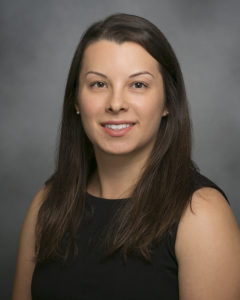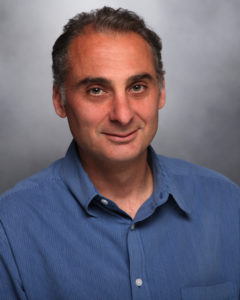With new funding from the National Institutes of Health, the Kaiser Permanente Division of Research will train young scientists to translate research into prevention strategies and care improvements for people with diabetes.
A new generation of Kaiser Permanente scientists is ready to tackle the problem of how health systems can deliver the best care to increasing numbers of people with diabetes.
The Kaiser Permanente Division of Research has received a T32 grant from the National Institute of Diabetes and Digestive and Kidney Diseases (NIDDK) to train young scientists in translating research into practice for people with type 2 diabetes and prediabetes. T32 training grants are much more commonly awarded to universities; this is the first time that a Kaiser Permanente research institution has received T32 funding.

“I’m interested in getting more training in interventions, especially physical activity interventions and how they fit into a health care system like Kaiser Permanente,” said Sylvia Badon, PhD, the first Kaiser Permanente researcher to receive a T32 training fellowship. “How can we actually change people’s behavior and help them be more active?”
The T32 diabetes fellowship is co-led by research scientist Julie Schmittdiel, PhD, whose work focuses on translational research in diabetes and diabetes prevention, and research scientist Richard W. Grant, MD, MPH, whose work focuses on complex patients who have a host of other health issues in addition to diabetes.

“We want our fellows to gain the skills and expertise so that they can make a difference in how diabetes and prediabetes are managed in health systems,” Grant said. “We spend millions of dollars on health care and not very much money on how to deliver that care. We need a cadre of researchers who are skilled at doing that.”
Both Schmittdiel and Grant lead the Division of Research’s Delivery Science Fellowship Program, funded by The Permanente Medical Group. The program has trained over a dozen young investigators in health systems research; the T32 diabetes fellows will train alongside them.
“We are providing young researchers with the opportunity to work within one of the leading health care delivery systems in the country, alongside accomplished researchers who have proven track records in their fields, and to work with a cohort of other delivery science trainees and postdoctoral fellows,” said Schmittdiel, who is also the director of NIDDK’s Center for Diabetes Translational Research.
Building on research and mentorship

Badon, the first T32 fellowship recipient, came to the Division of Research as a postdoctoral fellow in the Women’s and Children’s Health section.
A perinatal epidemiologist, Badon’s work focuses on lifestyle factors during pregnancy and links to mother and child health, including diabetes and depression before, during and after pregnancy. The T32 program allows Badon to build on her research and continue working with mentors Lyndsay Avalos, PhD, MPH, and Monique Hedderson, PhD.
In addition to partial salary support and participation in the fellowship training program, she will receive funding to attend workshops in physical activity interventions and grant writing. Badon will also have the opportunity to continue bouncing ideas off her fellow delivery science colleagues with regular “works in progress” meetings and a journal club.
Research within a learning health care system
In addition to two research fellows, the T32 grant will allow Schmittdiel and Grant to bring in four medical students in 2019 to do translational diabetes research, with a focus on diversity and disparities in care.
“We’ve shown NIH that this is a really good place to train investigators and research scientists,” Schmittdiel said. “We’re also showing NIH that this is a great place to train medical students.” Schmittdiel and Grant are hopeful that the fellowship can help The Permanente Medical Group to recruit diverse clinicians who are committed to research.
“Other large systems are trying to improve their care, and other academic departments are doing research, but we’ve got this combination of a very large research department within a learning health-care system that is committed to continuing to improve care,” Grant said. “This environment presents a unique opportunity for post-doctoral training.”
Click here for more information about the Division of Research’s T32 Diabetes Fellowship.





This Post Has 0 Comments